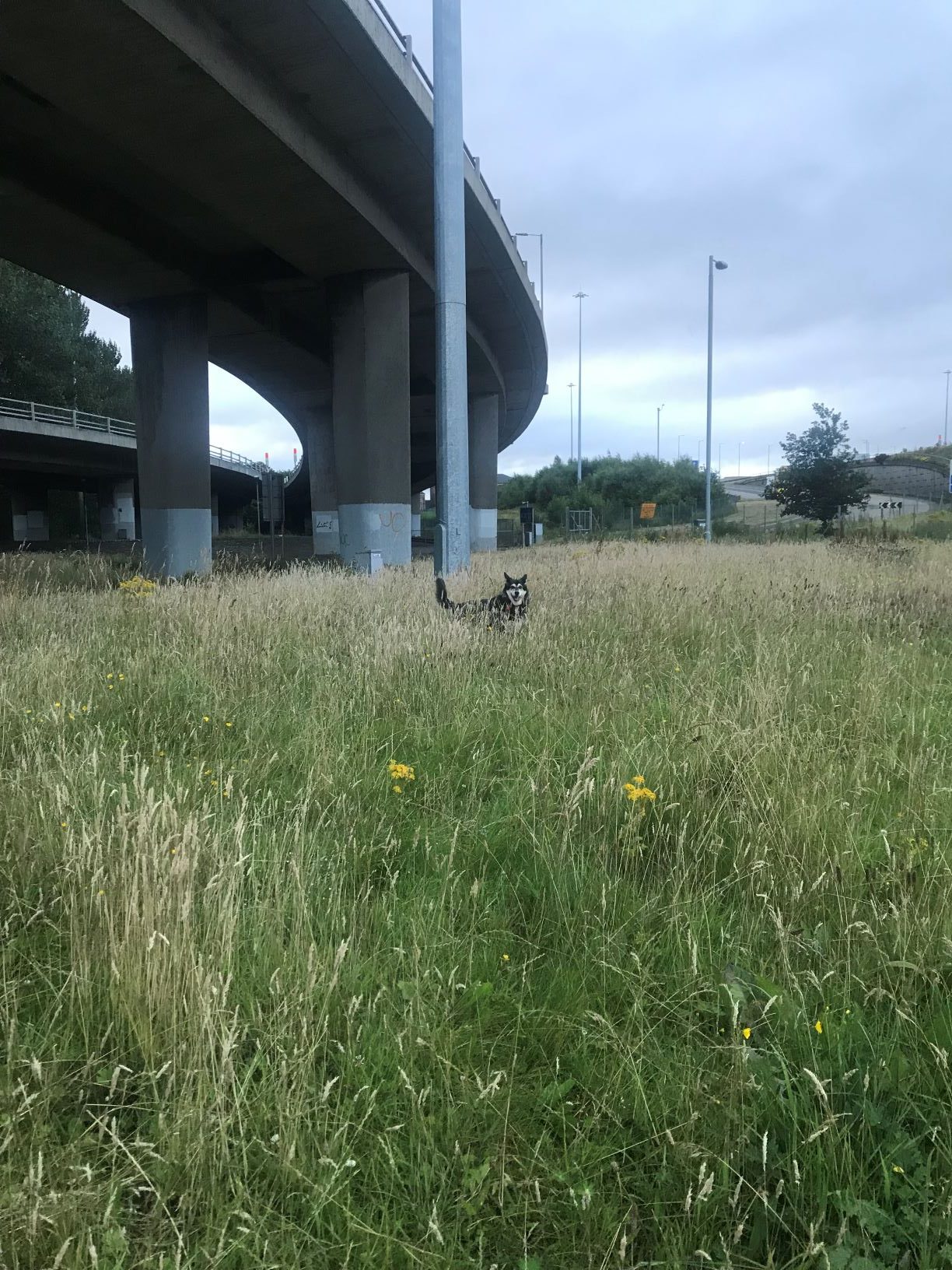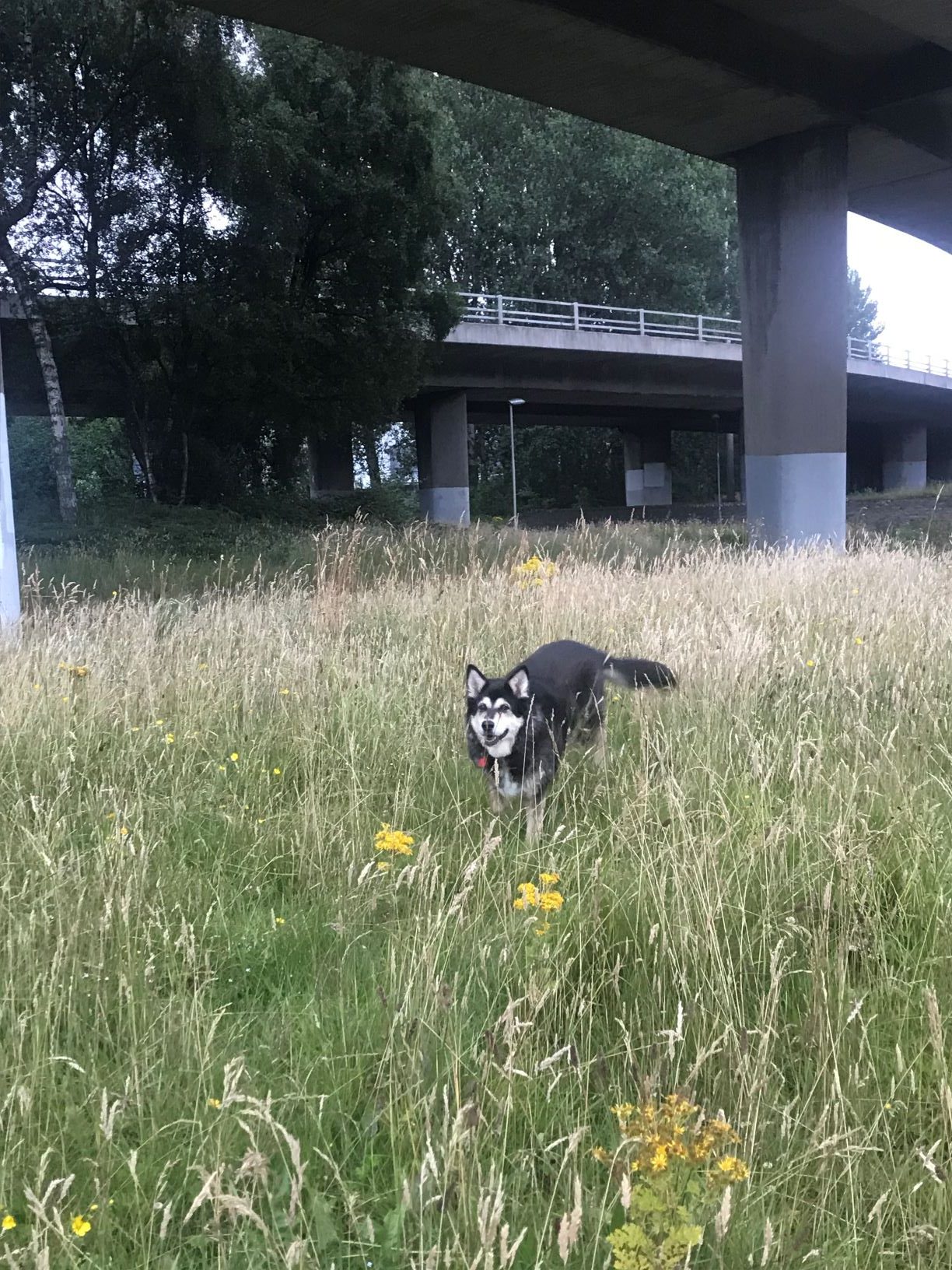While our building’s courtyard is very nice, it’s a little boring sometimes. Other times, it’s a bit too exciting. The seagulls apparently object to Raksha hanging out there during their breeding season, and so a couple months ago, particularly at night, they started making a lot of noise and swooping at us whenever we went out. They never got close enough to be a threat, but Raksha now has a somewhat reasonable fear of flying dinosaurs, and gets nervous every time she hears them.
Ah, the joys of island living.
So we periodically go to a nearby park. Well, I say park. What I actually mean is one of those areas under and around a highway on-ramp where there’s a lot of grass and some trees. It’s surprisingly pretty there, with surprisingly little litter, and the seagulls apparently don’t object to our use of the place.

The Beast lurks in the grass. She would like me to throw something for her.

The Beast feels that I am not throwing the pebble in my hand fast enough. She approaches, jaws open, to scare me into doing her bidding.

The Beast approaches. I must now throw something, or face certain doom.

The Beast Sproingeth. Now that I have, finally, thrown a pebble for her, she will bounce around in the field looking for it until she gives up, and comes back to demand I do it again. I use pebbles because she never brings back the things I throw.
In her youth, Raksha’s favorite pastime was chasing stones thrown into tall grass. She can’t dolphin around looking for them as much as she used to, but she still enjoys it, and it’s nice to live in a place where I can provide that for her again, now that she’s an old lady.

Feuch an cluaran, suaicheantas nan Albannach

Dh ’fhaodadh tu seo a chleachdadh mar chluba.
Urban living really is more pleasant when one has access to even a little pocket of “wilderness”. I’ve even seen a fox in this spot!
If you enjoy these pictures, or find this blog to be a useful resource, please consider supporting me through patreon.com/oceanoxia. You can sign up for as little as one U.S. dollar per month, and every new patron really does help a great deal. Aside from helping me make ends meet, you also get access to some patrons-only articles and short stories that aren’t available anywhere else.
